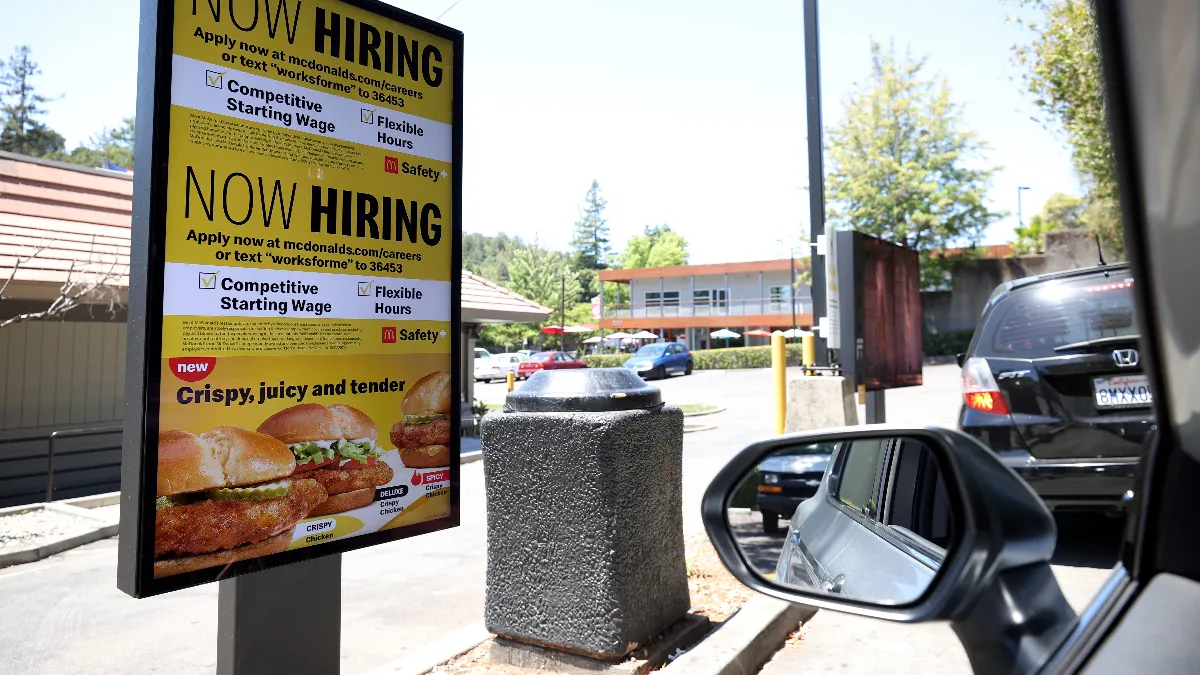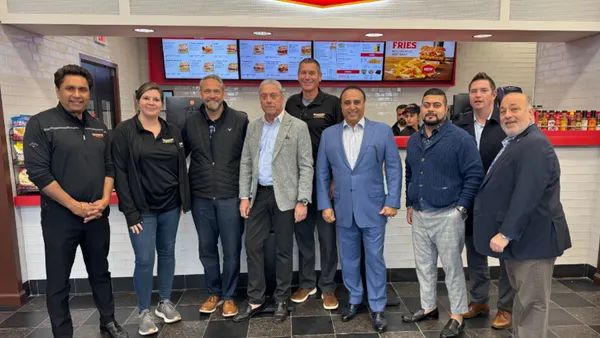Dive Brief:
- Food services and drinking places filled 253,000 jobs in July, compared to 194,000 in June, according to the U.S. Bureau of Labor Statistics data, which represents a 30% increase in hiring.
- The industry has hired over 1.3 million employees since January and now employs 11.3 million people compared to 9.8 million people in July 2020, a 15% increase.
- While July’s employment numbers are nearly double the industry's employment low of 6.3 million reported in April 2020, it is still about 1 million shy of February 2020 employment numbers at 12.3 million. The industry has now had seven months of job gains.
Dive Insight:
Despite the restaurant industry representing the highest job gains among any other sector in both June and July, the segment continues to deal with a heightened labor shortage. Many employees remain reluctant to return to work or have moved onto other industries that were more stable during the pandemic. Staff are also concerned about their safety during this time and are dealing with increased harassment about enforcing health policies like mask mandates. Employees quit in record numbers in April and May with rates reaching 5.7% for the first time ever.
Restaurant employers are trying to attract new workers with sign-up bonuses, mass hiring events, and faster application and interview processes. Many big chains, including Chipotle, Darden, McDonald's and Starbucks, are raising wages and offering enhanced benefits.
Hourly earnings for nonsupervisory employees increased to $15.41 in June, the most recent data set available. This compares to $14.57 per hour in March and $13.98 in January 2020. May marked the first time the industry surpassed $15 per hour in average wages in the last 10 years, per BLS' data.
Increased wages are among the most helpful strategies for recruitment and retention. Earlier this year, 76% of restaurant workers said they were planning to leave jobs over low wages and tips, according to One Fair Wage. Higher wages at Chipotle, for example, have helped improve staffing retention, which CFO Jack Hartung said was "as good or better" than pre-pandemic as of Q2 2021.










